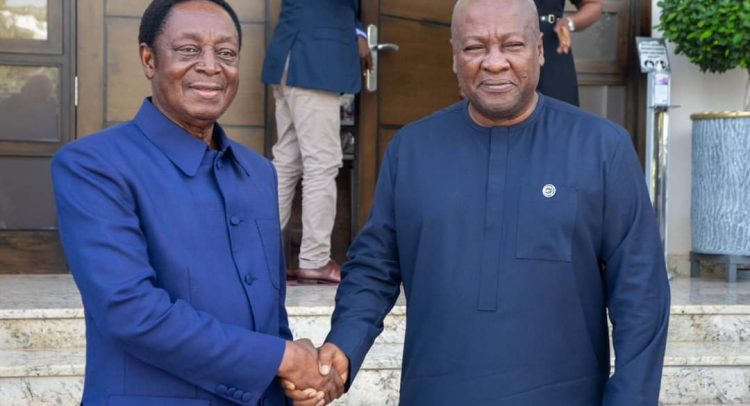
By Ebenezer Chike Adjei NJOKU
The Ministry of Finance (MoF) has defended its decision to set the effective value added tax (VAT) rate at 20 percent in the 2026 national budget, arguing that the figure represents a critical balancing act between providing significant fiscal relief to the private sector and meeting government’s ambitious revenue mobilisation targets.
The ministry’s position was articulated by Samuel Arkhurst, Coordinating Director (Technical) & Director responsible for the Real Sector Division at the MoF, during the annual Deloitte Economic Dialogue on the 2026 Budget where he directly addressed concerns raised by President-Ghana Hotels Association (GHA) Dr. Edward Ackah-Nyamike.
Dr. Ackah-Nyamike had expressed the association’s “uncomfortable” sentiments regarding the 20 percent rate, noting that the GHA had hoped for a far more substantial reduction – specifically, a 10 percent standard VAT rate – given the history of cumulative levies applied to the tax base, noting that scrapping the COVID-19 levy is insufficient.
This comes as total expenditure for the 2026 fiscal year is forecast at GH¢302.5billion, representing 18.9 percent of GDP against projected revenue and grants of GH¢268.1billion, according to budget estimates.
The rationale
Responding to the industry’s request, Mr. Arkhurst – who was representing the sector-minister Dr. Cassiel Ato Forson – acknowledged the validity of GHA’s aspirations for deeper cuts but maintained that government’s mandate requires a responsible approach to revenue generation.
He detailed the calculations and trade-offs that led to the 20 percent effective rate, which is derived from the standard VAT rate, National Health Insurance Levy (NHIL) and Ghana Education Trust Fund (GETFund) levy.
“The reduction is a bold position. We have effectively removed six percentage points of indirect tax from the system, resulting in a decline from the previously estimated 21.9 percent effective rate to 20 percent,” Mr. Arkhurst said.
He elaborated that the 20 percent figure was chosen to preventerosion of the domestic revenue base, which remains essential for financing public services and development projects.
While government is committed to easing the tax burden, its core fiscal responsibility is to ensure sustained growth of the Tax-to-GDP ratio – a key measure of national economic strength.
Current projections outlined in the budget aim to grow the ratio from 16 percent of Gross Domestic Product (GDP) in 2025 to 16.8 percent in 2026, with a long-term goal of reaching 18 to 20 percent by 2027. Achieving these targets requires a measured approach to tax reform.
According to the MoF, cutting the effective rate to 10 percent as desired by the GHA would have created a GH¢15billion revenue shortfall – a gap the national budget could not sustainably accommodate without compromising core social and infrastructural expenditure commitments.
Relief mechanisms, policy reform
Mr. Arkhurst highlighted that the new policy achieves significant relief by simplifying the tax architecture and improving efficiency. The effective rate reduction is primarily facilitated by two key reforms: primarily removal of the 1 percent COVID-19 Levy, which was previously a non-reclaimable cost.
Crucially, the NHIL and GETFund components are now fully reclaimable as Input VAT by businesses – addressing a long-standing complaint that these taxes were cascading, or compounding, through the supply chain.
“This policy shift is designed to ensure that businesses, particularly those in the services sector like hotels, see an immediate reduction in their final tax liability,” Mr. Arkhurst confirmed.
“It demonstrates that government is responsive to challenges of the private sector and is committed to fostering an environment where enterprises can thrive,” he added.
Macroeconomic justification, sector focus
The MoF official linked VAT adjustment to the 2026 Budget’s overarching theme of ‘Resetting for Growth, Jobs, and Economic Transformation’. He noted that the fiscal package is designed to translate macroeconomic stability, which has seen real GDP expand by an estimated 6.3 percent in first-half 2025, into tangible business expansion.
The services sector, which includes hospitality, was singled out as the “heartbeat of recovery” – having surged 8.8 percent in first-half 2025. The tax relief measures, he argued, are strategically targetted to sustain this momentum, encouraging investment and supporting the creation of “tangible jobs”.
Call for collaboration
Providing context on the dialogue, Daniel Owusu, Managing Partner-Deloitte Ghana, stressed the necessity of such forums for bridging the gap between policy design and private sector implementation.
He stressed that the 2026 Budget’s success will depend heavily on continuous feedback and collaboration between policymakers and industry leaders to ensure reforms are both fiscally sound and economically effective.
“Effective reforms do not end with policy announcements, they succeed only when government and industry stay in constant dialogue. If we want the 2026 Budget to deliver real value, then collaboration must be continuous, candid and grounded in mutual responsibility,” Mr. Owusu said.
The post MoF defends 20% VAT, against industry plea for 10% rate appeared first on The Business & Financial Times.
Read Full Story



















Facebook
Twitter
Pinterest
Instagram
Google+
YouTube
LinkedIn
RSS